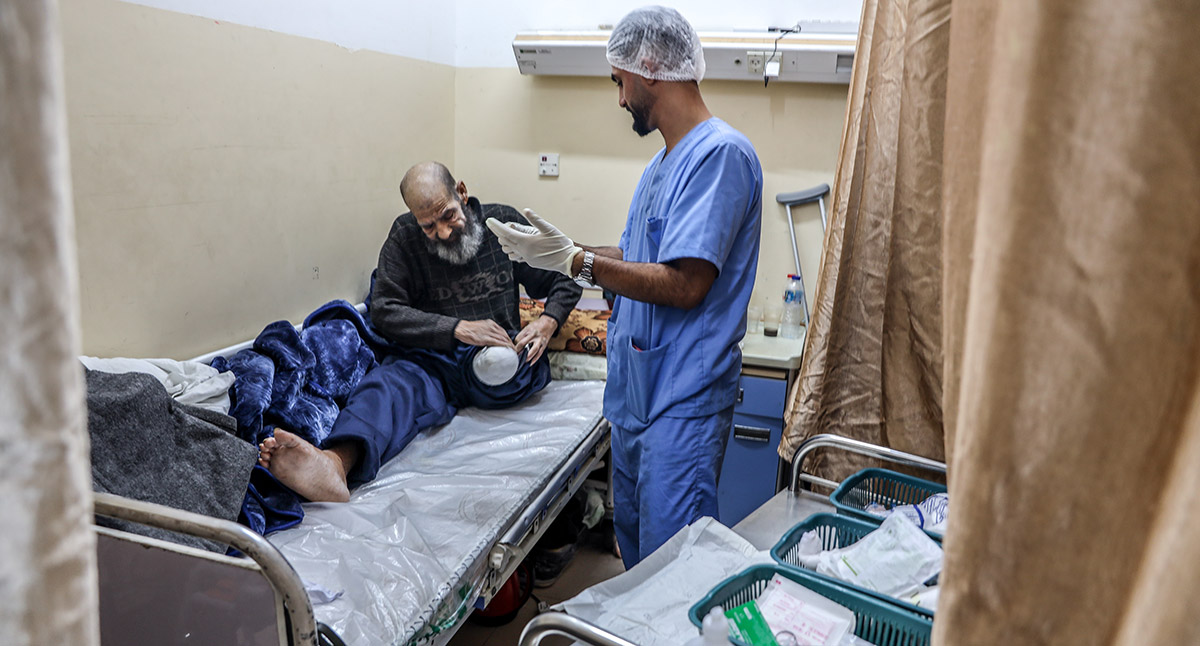
15 June 2024, Cairo, Egypt – On World Elder Abuse Awareness Day 2024, the spotlight is on older people in emergencies. Older people often face mobility issues, chronic health conditions or social isolation –some of the factors that can hinder their ability to access aid, evacuate safely or receive timely medical care and support services. The chaos and stress of emergencies can make such conditions worse, increasing the risk of elder abuse.
Populations are ageing rapidly, with the number of people aged 60 years and above globally expected to rise from 900 million in 2015 to about 2 billion in 2050. Elder abuse is therefore predicted to rise too. Against this backdrop, it is increasingly vital to emphasize that respect and care for older people are human rights that should never be violated.
Abuse of older people may be a single or repeated act, or lack of appropriate action which causes harm or distress to an older person. Abuse of older people can take many forms, including physical, sexual, psychological or emotional abuse. Financial or material abuse; abandonment; neglect; or serious loss of dignity and respect are also types of elder abuse.
Like other forms of violence, rates of abuse of older people have risen during the COVID-19 pandemic. Emergency situations such as pandemics, natural disasters or conflicts disproportionately affect older people, by making existing vulnerabilities worse. Emergency planning and response must address the elderly population’s specific needs.
Elder abuse is a growing health issue worldwide. In 2021, about 1 in 6 people aged 60 years and above had experienced some form of abuse in community settings. The Eastern Mediterranean Region is no exception, especially as humanitarian crises affect half its countries and territories.
Abuse of older people occurs in relationships and places where there is an expectation of trust. Rates of elder abuse are high in institutions such as nursing homes and long-term care facilities. Shockingly, 2 in 3 staff of such facilities reported, in 2021, that they have committed abuse of older people. Acts of violence against elderly people can lead to serious physical injuries and long-term psychological impacts.
This year’s World Elder Abuse Awareness Day campaign emphasizes the urgent need to protect older people from abuse during crises. It calls on governments to foster a more inclusive and protective environment for elderly people in emergencies. The campaign also encourages the development of inclusive policies that ensure older people are not overlooked during crises.
The campaign calls on policy-makers, international donors, organizations and communities to prioritize the safety and well-being of older people in emergency preparedness and response strategies. Another focus is to educate and train emergency responders, caregivers and the public on how to support elderly people in ways that ensure their dignity.
On World Elder Abuse Awareness Day 2024, let us renew our commitment to respect and protect the rights of older people at all times, including during times of crisis.


